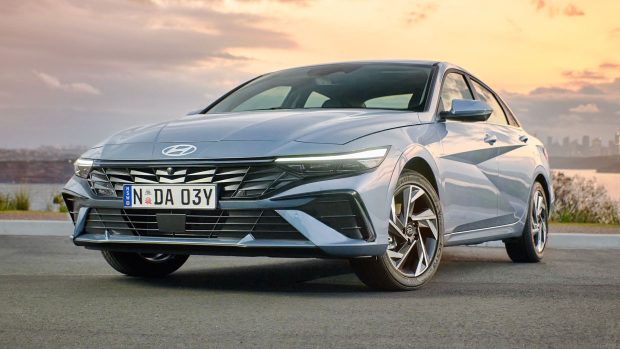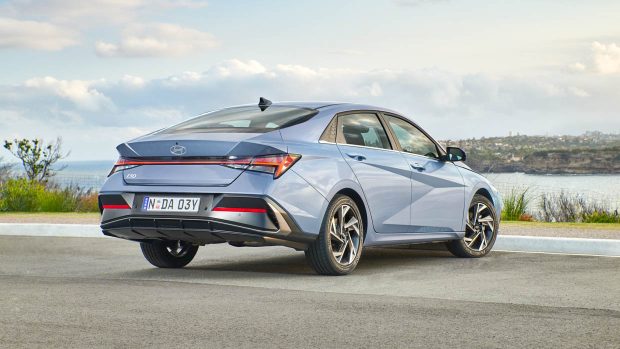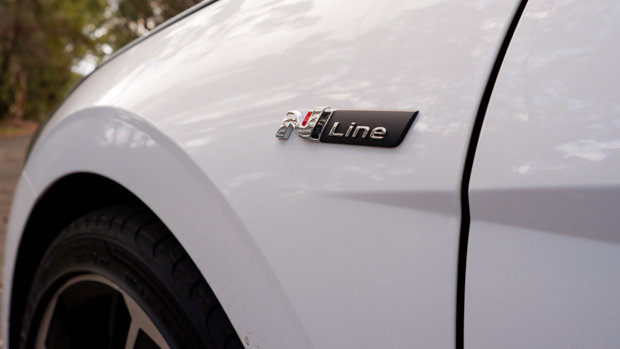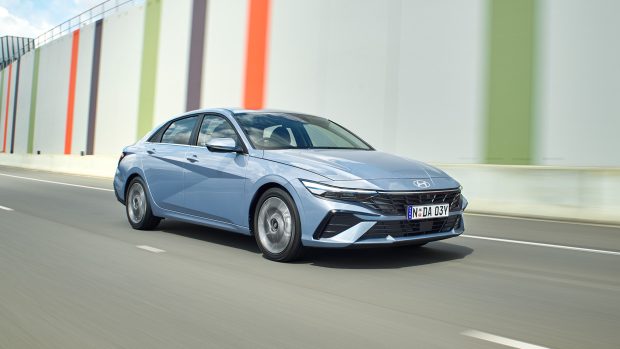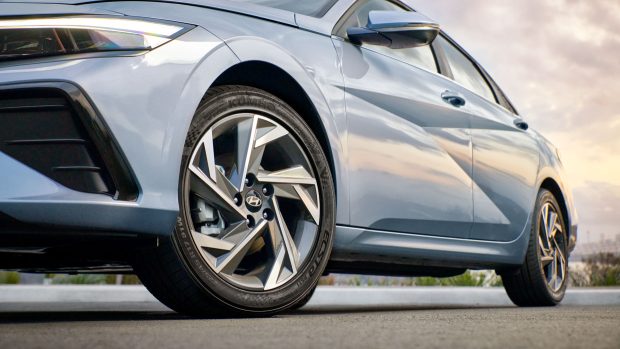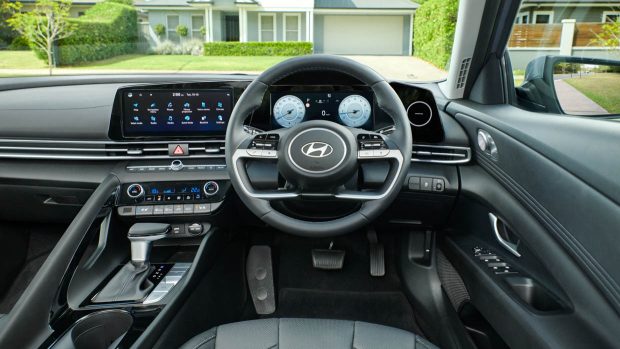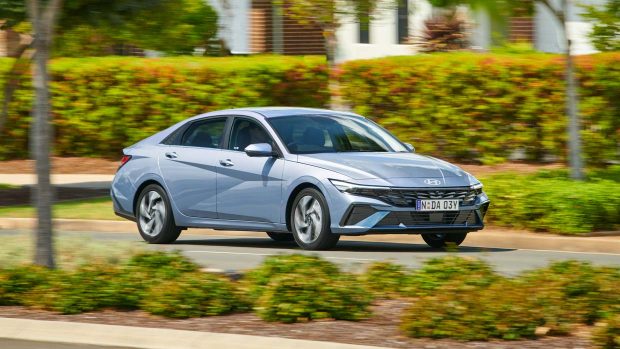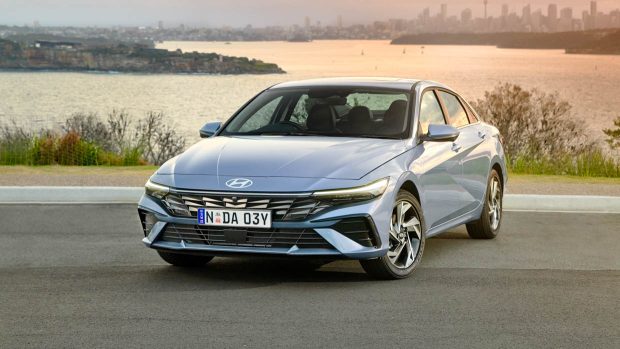-
Car Reviews
- All reviews
- Midsize SUVs
- Small cars
- Utes
- Small SUVs
- Large SUVs
- Large cars
- Sports SUVs
- Sports cars
- Vans
Latest reviews
- Car News
-
Car Comparisons
Latest comparisons
- Chasing Deals
Yet another small car has lost its manual option but gained a fuel-sipping powertrain choice in return
Hyundai has revealed pricing and specifications for its facelifted i30 Sedan range, which now features a frugal hybrid option, with pricing now kicking off from $29,000 before-on-road costs.
As recently seen with the Mazda 3 and the Volkswagen Golf before it, the six-speed manual transmission option has been axed across the range. However, a forthcoming i30 Sedan N update, due in early 2024, is expected to retain this choice.
The starting price reflects a $1000 jump in the price of entry over the equivalent auto (or $2000 more than the outgoing manual) but this comes in exchange for upgrades including the refreshed styling, a higher level of standard specification, upgraded technology and more safety features.
While the bulk of the range is now available in showrooms, the i30 Sedan Hybrid won’t arrive until the first quarter of 2024 and only in the base ‘i30’ trim level, with a $33,000 (before on-roads) starting price.
Higher trim levels of the hybrid will follow later in the second quarter, with pricing and exact specifications yet to be determined.
Claiming an average fuel consumption of just 3.9L/100km, the i30 Sedan Hybrid draws equal with the Toyota Corolla Ascent Hybrid sedan – but it remains to be seen how the Korean will perform in the real world.
Ignoring the updated high-performance N variant, which is due to arrive in early 2024, Hyundai has split the range into two grade formations.
The carryover 2.0L four-cylinder petrol and 1.6L four-cylinder hybrid are available in the renamed base ‘i30’, Elite and the new Premium grade. Meanwhile, the 1.6L turbo petrol is sold in the more sporty N Line and N Line premium grades.
Hyundai pairs the 110kW/180Nm 2.0L petrol exclusively with a CVT transmission, while the hybrid utilises a 1.6L engine mated with a 32kW/170Nm electric motor, feeding power through a six-speed dual-clutch transmission. While the total system power is yet to be confirmed, the torque tops out at 265Nm.
Exact outputs are also yet to be confirmed for the N Line, but it will continue to use a 1.6L turbocharged four-cylinder engine sending power to a seven-speed dual-clutch automatic. All i30s are front-wheel-drive
The base grade is now available in either 2.0L petrol or 1.6L hybrid form and benefits from key upgrades including new 16-inch alloy wheels, premium cloth seats, LED headlights and USB-C ports throughout the cabin.
Hyundai has also beefed up the wireless phone charger and upgraded the 4.2-inch display, which sits in front of the driver. The standard safety suite has also been bolstered with the addition of more advanced forwards AEB and standard front parking sensors.
Other standard features include:
A key difference between the petrol and hybrid versions is the latter packs multi-link rear suspension (instead of a torsion beam), loses its full-size spare for a space safer, and adds dual-zone climate control and rain-sensing wipers.
Hyundai’s i30 Sedan Elite grade primarily benefits from the addition of Bluelink technology, which enables a variety of connectivity features that you can read about in our separate article. A five-year subscription is included with the purchase.
Other features include:
The new premium grade benefits from a variety of features new to the i30 Sedan including Hyundai’s blind-spot view monitoring, 360-degree view monitoring and a heated steering wheel.
Other features include:
Benefiting from many of the changes seen to the base ‘i30’ grade, the N Lines adds a unique body kit along with new 18-inch alloys wheels. It also features rear multi-link suspension like the hybrid.
The N Line grades have a slightly delayed arrival into Australia, landing in late November.
Some of the highlight features include:
Stepping up to the N Line Premium adds:
All prices listed are before on-road costs.
Latest news
About Chasing cars
Chasing Cars reviews are 100% independent.
Because we are powered by Budget Direct Insurance, we don’t receive advertising or sales revenue from car manufacturers.
We’re truly independent – giving you Australia’s best car reviews.
